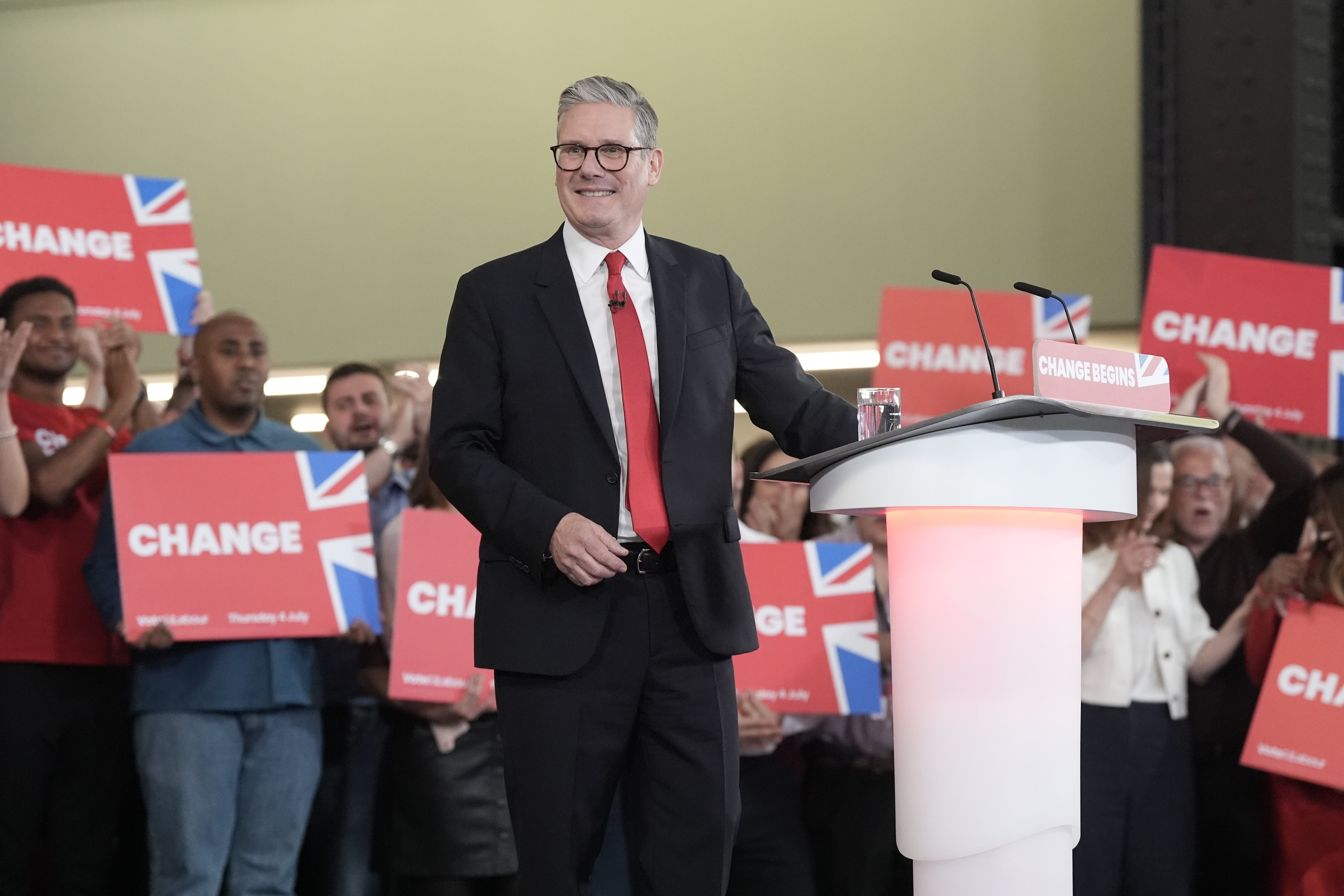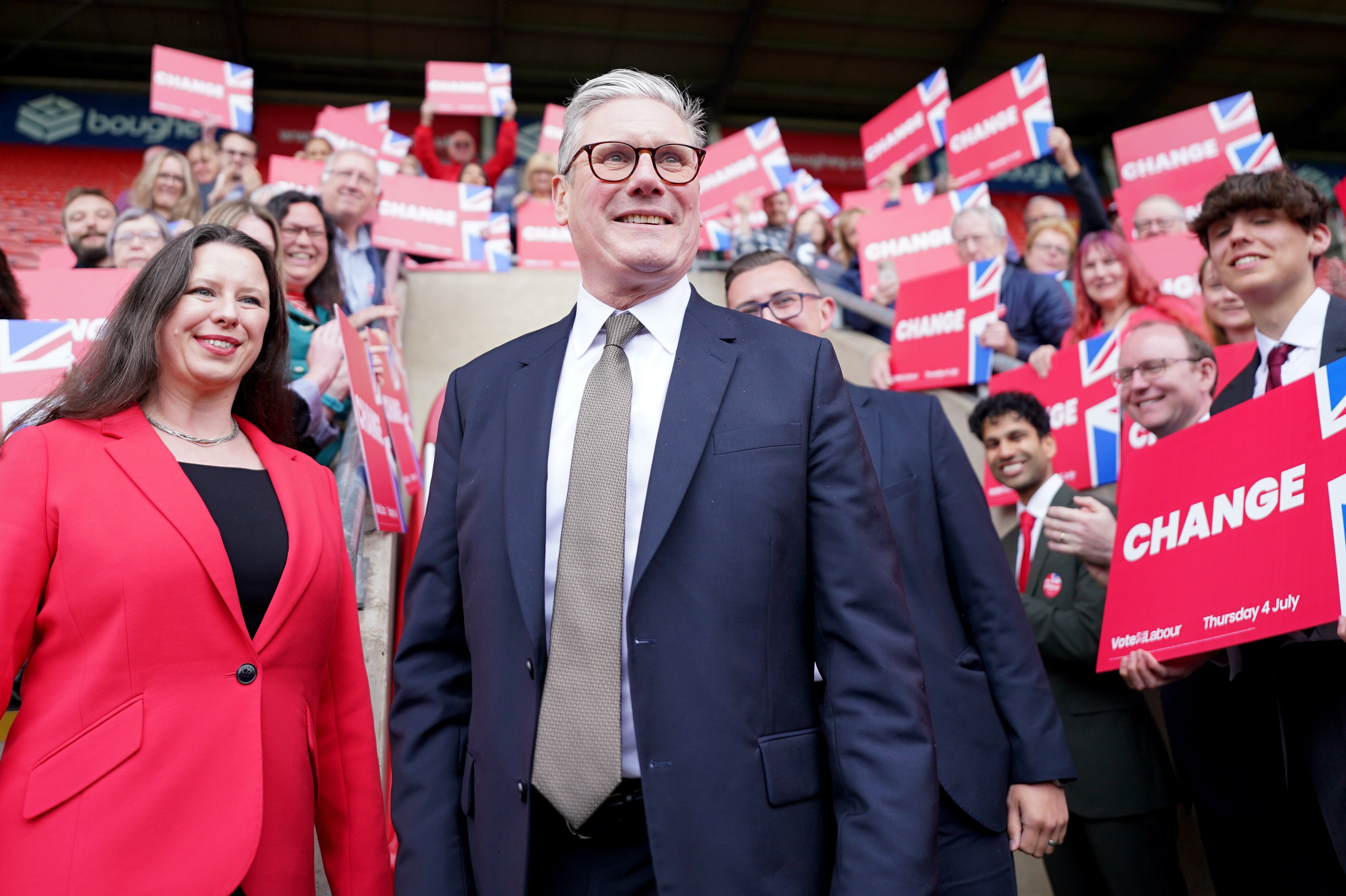This website uses cookies so that we can provide you with the best user experience possible. Cookie information is stored in your browser and performs functions such as recognising you when you return to our website and helping our team to understand which sections of the website you find most interesting and useful.
Support truly
independent journalism
Our mission is to deliver unbiased, fact-based reporting that holds power to account and exposes the truth.
Whether $5 or $50, every contribution counts.
Support us to deliver journalism without an agenda.

Louise Thomas
Editor
Fashion has always been a tool for political expression. Style choices hold power, and often function as a mirror of our times.
It’s something Keir Starmer – who will now become the UK’s new Labour prime minister, taking over from his Conservative predecessor Rishi Sunak following the election landslide – will have tapped into to help convey messages to the public and build the desired image he wants to present as a politician.
“We often spend time focussing on how female politicians dress, but there’s good reason to look at the men just as much. There’s a long history of politicians using clothing to make a point,” says Dr Tim Ellis-Dale, senior lecturer in history and political masculinity at Teesside University.
“Togas indicated what rank you held in ancient Rome, and late European kings dressed in exuberant colours up to the 18th century to convey their wealth and power.

“Men’s clothing gets a bit duller and more standardised in the 19th century, but even then, it’s a subtle way of making a point about who you are and what you represent,” Ellis-Dale adds. “In the 20th century, more left-wing politicians sometimes eschewed formal dress to make an egalitarian gesture, while fascist politicians often wore political uniforms to make a point about power and authority.”
So, what does Starmer’s fashion reveal about the UK’s new leader?
A sense of stability
Ellis-Dale believes Starmer’s main goal in this election was to convey a sense of stability, normalcy and consistency.

“So, it’s no surprise that he stuck to the same shirt and tie combo. A smart suit generally conveys a sense of seriousness and professionalism, and in wearing one, Starmer will be trying to show that he can restore a sense of stability to British politics,” he says.
“Seeing the same outfit again and again will also convey consistency. Consistency will breed a sense of familiarity, and that in turn can lead to trust.”
A relaxed edge
Although Starmer is striving to be seen as a professional and respectable politician, Ellis-Dale thinks there’s more to his sartorial aims than just that.

“At the same time, there’s an interesting side to him that doesn’t get talked about. There is a willingness to display a more relaxed version of himself, which is why we’re seeing him wear Stone Island tops,” Ellis-Dale observes.
“This has led to references to him being a ‘football and Peroni dad’, which allows him to be more relatable.”
Understated choices
Starmer’s fashion choices are not exactly attention-grabbing, either. “But not doing anything attention-grabbing is a fashion choice in itself, signalling his preference for people to focus on the substance of his policies and output, rather than the man behind them,” Ellis-Dale adds.
Trustworthy and pragmatic
According to men’s personal stylist and shopper Nick Hems, Starmer’s style offers a window into his personality and priorities.
“He consistently frames his face well, with suits that fit nicely around the neck and well-sized shirt collars. He pays careful attention to his hair,” Hems notes, “and recently adopted glasses that flatter his face shape, ensuring people are drawn to his face and can easily focus on his words.”
Hems continues: “While he clearly cares about his appearance and invests in his wardrobe, he doesn’t identify with a specific fashion style like Rishi Sunak. He seems indifferent to the excitement of choosing what to wear.

“Like many men, Starmer appears to approach shopping with a ‘get it done’ mentality. His suits, likely bought off-the-rack, sometimes have sleeves that cover his hands, missing the mark of showing a critical half-inch of shirt cuff.”
Authentic
Celebrity stylist and designer Kelsey Norris believes Starmer is “a man of the people” whose style reflects simplicity and authenticity.
“An Arsenal fanatic who loves football and his family, he shops on the high street and wears affordable brands that reflect UK subculture and streetwear. His suits are more Suit Supply than Savile Row,” she explains.
“In contrast, Rishi Sunak comes from a wealthier background and isn’t shy about flaunting it, donning Canada Goose puffers (£1250) and bespoke suits from Henry Herbert, a Bloomsbury tailor (reportedly £3500).”
Footwear is another area where their tastes diverge.
“Five pairs of shoes from Starmer’s footwear collection would still cost less than one pair of Rishi Sunak’s beloved Prada loafers,” suggests Norris. “You can find Keir keeping it low-key in eco-friendly trainers by brands such as Adidas (£90), Converse (£50) and Veja (£120).”
Styling tips for Starmer

Hems says there are some common style missteps Starmer and many other men fall into, including “buttoning the bottom-most button of his suit jackets – a surprising habit for someone who has worn suits for much of his life”.
He adds: “Additionally, he sometimes wears dark-coloured shirts that don’t particularly complement him or his suits. This indicates that while he cares about his appearance, fashion isn’t a primary concern for him — and it doesn’t need to be.”
Menswear style expert Phill Tarling agrees, and believes Starmer could step up his tailoring game now.
“A well-fitted suit is important for a prime minister because it conveys professionalism, authority and attention to detail, which are essential qualities for a leader in the public eye.
“However, ill/loose-fitting suits send out a message of carelessness and lack of attention to detail. They suggest that you are not concerned with your appearance, which can be perceived as unprofessional and sloppy.”



 Africana55 Radio
Africana55 Radio 
